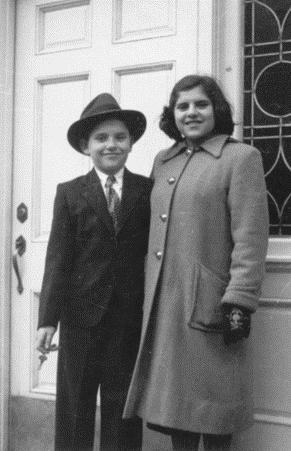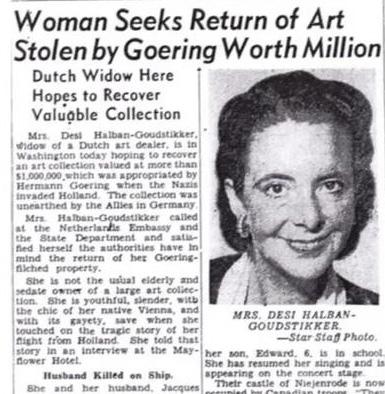
4 minute read
My Father Pincus Kolender
My father, Pincus Kolender, was born on February 8, 1925, in Bochnia, Poland, one of three children. His early life was filled with school, family, Judaism, and friends. This all changed when the Nazis invaded Poland.
In late 1942, the Nazis told the leader of the Bochnian Jewish community to pick 150 people to stay in the ghetto; the remaining residents would be sent to concentration camps. Since my father’s family knew the leader, they were placed on the protected list. However, it turned out that 250 people were granted protection. This infuriated the Nazi leader, who immediately grabbed 100 people, including my father’s mother, Rachel, and shot them in front of the entire horrified community. My father and other teenagers were forced to collect the bodies and place them in a pile to be burned. He tried to pull his mother’s body aside to later give her a decent burial. However, a Nazi soldier spotted him and hit him over his head with the butt of his rifle, screaming “filthy Jew.”
His father, Yechiel, an accountant, was murdered in the Plaszow concentration camp, and his sister, Roiza, was killed in the Treblinka concentration camp. My father and his brother, Avram, were sent to Auschwitz. Upon arrival, Josef Mengele, the infamous Angel of Death, divided the newcomers into two lines. My father and his brother were sent to the left line, which was full of very ill and very old people. Sensing something was amiss, my father grabbed his brother and, when no one was looking, ran to the right line. The people in the left line were sent to the gas chambers, and my father and his brother survived, soon to be assigned to hard labor.
My father and his brother survived the numerous horrors of Auschwitz. In January, 1945, the Germans, realizing the Allied forces were closing in, took my father and an estimated 60,000 Auschwitz prisoners on a “Death March” for over 35 miles in the cold and snow. During the march, my father’s brother attempted to escape and presumably was shot, never to be seen again. Later in the march, my father collapsed from starvation and pain; an elderly prisoner picked him up and scolded him “you are young, keep walking, you need to survive.”
In April, 1945, he and many other prisoners were placed on a train to take them away from the oncoming Allied forces. When an American fighter plane shot at the train, my father jumped off and ran, despite bullets flying all around him. He and another escapee eventually stopped at the house of a Czechoslovakian farmer and explained their situation. The farmer, risking his life, dug a foxhole for them to hide, and fed them. Unfortunately, he fed them too well, as my father got very sick, not having eaten real food in more than two years. The farmer went into town on his horse and buggy in the middle of the night, and brought a doctor back to the farm. The doctor, also risking his life, saved my father’s life. After 16 days of hiding in the foxhole, and being fed by the farmer, the war ended and my father was a free man, the only survivor of his extended family. My father never forgot the extreme kindness and bravery of the farmer, referring to him as an “angel from heaven.”
After the war, as a result of the restrictive immigration policies then in effect, my father was not allowed into the U.S. until 1951. He wanted to live in New York or Chicago, cities
he had heard so much about. However, upon his arrival in Ellis Island, he was told that the Jewish Community Center in Charleston, S.C., had agreed to sponsor him. Charleston, he said, what is that? Charleston turned out to be wonderful. He proudly served in the U.S. Army, met and married my mother, Renee Kolender, also a Holocaust survivor, had three children (and eventually six grandchildren), opened JEFF KOLENDER and ran Globe Furniture Company, made many friends, and became an integral part of the community. Soon after retirement, he, along with his good friend and fellow Auschwitz survivor Joe Engel, started to speak publicly about their experiences. He spoke to hundreds of thousands of people, warning of the dangers of hatred. While having to constantly recall his experiences often resulted in nightmares, he realized that may have been the reason he survived — to speak about his experiences and try to prevent another Holocaust. He spoke not of revenge or animosity, but of the need to judge people by their character, not by their religion, color or background. Despite his experiences, my father thought life was good, and was the eternal optimist. He was tough and resilient, but also extremely kind and generous. He carried himself with great dignity, but greater humor. As he always said — every day is a new day, and be grateful for what you have, whether it is a comfortable bed, a warm meal, or the love of family and friends. ■

Above: Pincus Kolender visiting his barracks at Auschwitz in 1987. Left: Serving in the US army, circa 1952. Below: His Auschwitz ID card.












